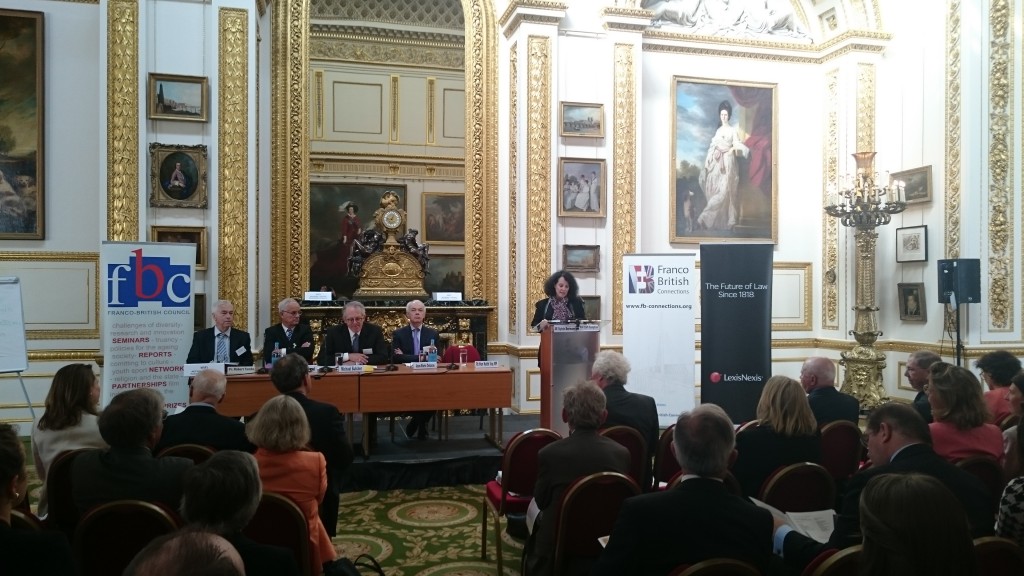The Franco-British Conference on the impact of Magna Carta and the Déclaration des Droits de l’Homme et du Citoyen opened with an “English travesty”: Rt Hon. Lord Sumption’s perspective on Thatcher’s belief in English exceptionalism regarding the nature and origin of human rights. He argued that unlike the Déclaration, Magna Carta is a document that is not important for what it states, but for what people wrongly believe it represents. Although both constitute an assertion of rights against the power of the state, Magna Carta holds no truths to be self-evident, espouses no universal claims, deploys no rhetoric and was never intended as a general, theoretical or philosophical statement. On the other hand, he argued that it is the Déclaration which should be considered a founding document of human rights, valuable on account of the propositions and the objections it raises. With his opening, Lord Sumption set the tone for dynamic and sometimes unexpected debate which would continue to compare and, on occasion, criticise, different approaches to fundamental legal issues on both sides of the Channel.
The first panel of speakers discussed constraints of sovereign power. Keith Vaz MP lauded the scrutinising role of the select committee system, whilst Prof. Robert Tombs highlighted the similarities rather than the differences between Magna Carta and the Déclaration. By drawing attention to the way that both failed in their immediate objectives — the former resulting in civil war and the latter in a breakdown of government and the Terror — Prof. Tombs underscored the idea that the aura of a document is often much more important than any sense of unambiguous reality. In other words, whatever the physical and bloody aftermath of these documents, neither the English Civil War nor the Terror could destroy the belief in human rights which they propounded, no matter how vague or unstable its definition.
It was Rt. Hon Lady Justice Arden who continued discussion on this theme as part of the second panel, asking a question which inevitably and necessarily poses more questions than it resolves: how can one define Magna Carta, and should it be considered a document or an event? In defence of its cultural, historical and legal significance, she argued that the fact that it was reissued twenty times and ordered to be read out in every cathedral twice a year, is testament to the way that Magna Carta has both established itself in the British psyche and surpassed our ability to unequivocally define it. The discussion also centred on Rome and Brussels, with Sylvie Goulard MEP arguing in favour of reform of the European Parliament. Following a break from lunch, the power of the state was discussed from a different angle by the third panel: freedom of speech and religion in the public domain, and in particular the definition and consequences of secularism. Shami Chakrabarti argued passionately in favour of the state’s lack of intervention in religious issues unless specifically called for.
The final part of the conference saw all members of the conference breaking up into small roundtables for discussion. Delegates were assigned to one of nine round tables on a topic following from the earlier discussions. Franco-British Connections students were given the opportunity to be rapporteurs for the discussion groups.
I participated in the session which dug further in the analysis of the constraint of sovereign power. My role was to synthesise the debate into three main points which I later presented to the conference as a whole in the plenary session. I found this part of the event to be particularly enriching as it allowed me to talk at length with legal and media professionals on a range of issues: from how best to curtail state powers and enforce more regulation, to the problems with allowing a police force to release someone on bail without judicial input. It was particularly interesting to hear the other rapporteurs’ account of their discussions and the directions they took, which was testament to the wide-reaching, dynamic debate which the day’s events fostered. At all stages of the conference I was impressed by the spirit of debate; the willingness to engage with multiple sides of an argument, to pose questions rather than to solve them, and above all, the desire not to divide French and British approaches to legal questions into a clear binary, but to continuously compare and contrast them so as to consistently respect an intellectual spirit of enquiry.
Write-up by Calypso Blaj



